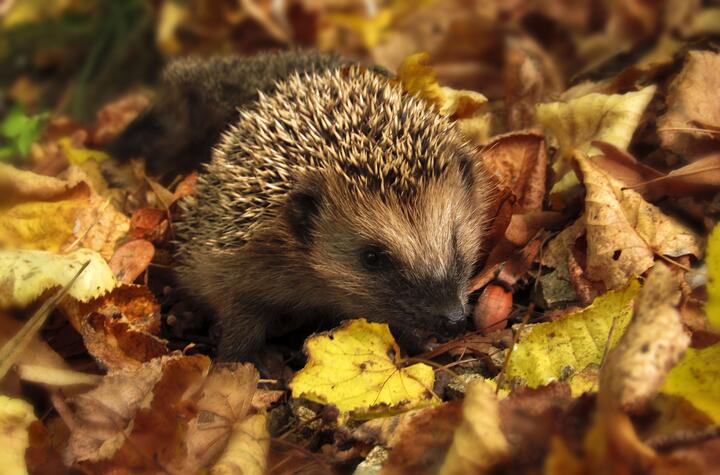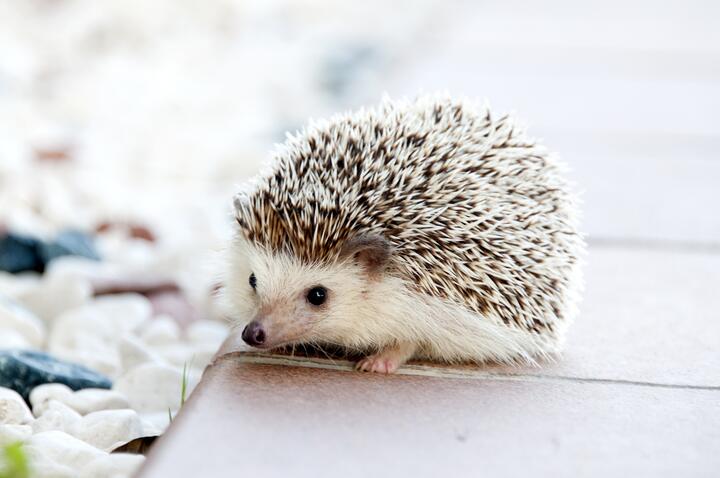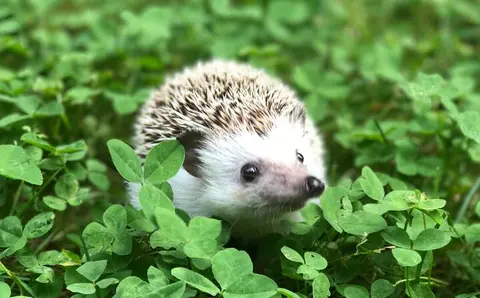How Do Hedgehogs Sleep?
Camilo WalkerDo you think the hedgehogs hibernate? These interesting and curious animals can lead to different lifestyles depending on the season. It is worth noting that their behavior varies depending on the time of year when they live in different conditions. When and how do hedgehogs go to bed? Let’s look at the photo of a sleeping hedgehog.
What do hedgehogs do in winter?
 Photo by monicore on pexels
Photo by monicore on pexelsWhen the ambient temperature drops, barbed hedgehogs go into hibernation, which continues for a long time.
An animal hibernation is an opportunity to survive under adverse weather conditions. For different breeds of hedgehogs, adverse conditions are different, so different periods of hibernation.
Why do hedgehogs sleep?
Let’s consider the reasons for this state of the animal:
1.Lack of sufficient food.
2.Low air temperature.
These prickly animals can not stock food for the winter. They accumulate fat deposits during the warm season.
Where does a hedgehog sleep?
This is a very important question, because if the hedgehog chooses the wrong place to hibernate, its wintering may end in death. With the onset of autumn cold weather, the animal digs a hole about a half meters deep, it allows them to winter under a thick layer of soil and bedding. Such a depth is chosen for a reason because it is an approximate level of soil freezing.
How do hedgehogs sleep?
Interestingly, these prickly balls spend the winter in an unusual position. The hedgehog wraps up in balls and presses her legs and nose tightly to the abdomen, and the tail in this position is pressed against the head. Thanks to this position, it is possible to reduce the possibility of heat loss. The area of body parts that come into contact with cold air is minimized. Every day the fat “melts”, there is a loss of body weight. Hibernation does not begin in an instant. The animal then falls asleep, then awake, and gradually passes during the winter hibernation.
See also 25 interesting and amazing facts about hedgehogs
 Photo by Pixabay on pexels
Photo by Pixabay on pexelsHedgehogs sleep throughout the day. This is normal for crepuscular and nocturnal animals. The daytime sleeping habit is most noticeable in newborn hedgehogs. The stress of moving to a new location causes a baby hedgehog to need extra sleep. This habit is common in humans as well. The main indicators of good health are adequate food and water intake, as well as stools that have a consistent quality.
Hedgehogs need up to 18 hours of sleep per day. Some may sleep more or less. However, they have no activities during the day, so it is only natural that they’d prefer to be sleeping. The length of their sleep depends on the temperature and weather conditions. For example, if you live in a cold climate, it is likely that your hedgehog will only sleep for eight hours a day.
Unlike human beings, hedgehogs do not grind their teeth. Instead, they sleep on their backs. As such, it’s possible to observe the animal’s behavior while it’s asleep. Although this may seem strange to humans, it’s important to note that a hedgehog’s sleeping habits will vary based on the temperature of its environment. The summertime sleeping pattern can range from eight to fourteen hours, while the winter sleep pattern depends on the temperature of the room.
Hedgehogs often sleep in groups when housed together, although they prefer to sleep alone. In some cases, sleeping in a group can lead to territorial issues and disagreements. Regardless of whether a hedgehog sleeps alone, they will sleep where they are most comfortable. If their living space is too cold or too hot, they may spend the entire day in a solitary mode. In addition, they will sometimes sleep in groups if they’re living in the same room as another hedgehog.
Hedgehogs are nocturnal creatures. They usually sleep for long periods of time and can only be awake when it’s cold outside. The majority of the time, they sleep in the same positions, although some breeds are more active during the day. While they’re awake, they may also sleep in different positions. If they are ill, they may not sleep at all during the day. They may also sleep during the night.
Although there is no definitive answer to the question of how hedgehogs sleep, there are some clues that can help us understand the hedgehog’s habits. If you’ve ever kept a hedgehog, you probably have noticed that it sleeps in the same position as you. A good bed is a bed, and a bed is a place to rest. If the bed is too warm, the hedgehog will wake up during the night.
Hedgehogs sleep in a variety of positions. A common sleeping position for the animal is curled up in a ball. As the weather gets colder, the hedgehog will switch positions to find the most comfortable sleeping spot. In fact, it can sleep for a long time. And if you don’t want to disturb the sleep of your hedgehog, you can simply leave it alone. Then, you can put it on its back, which will prevent it from rolling over.
When they’re in a ball, they sleep in the middle of a room. During the day, they may sleep as long as 18 hours, but some of them may sleep more. As a rule, baby hedgehogs sleep for more than 20 hours, which is quite a long time in a baby hedgehog’s life. The length of sleep is dependent on the temperature and weather conditions.
Hedgehogs sleep on their backs or on their stomachs when they are comfortable. The position is important because it shows that the hedgehog trusts humans and does not feel threatened. When the life of the hedgehog is threatened, they may choose to hibernate, a process that requires enormous energy. It’s important to watch the sleep schedule of your hedgehog. You’ll want to give your animal the opportunity to grow.
You’ll see that hedgehogs sleep all day. They come out at night to eat, and when they’re in a nest, they will sleep for a few hours. During the day, they may be out and about in the cage, but they’ll never leave the nest. The best place for a hedgehog to sleep is in a safe and secure area. If they’re in the litter box, you should not move them from their nest.
- Wildlife7 Interesting Facts About Leopards

- WildlifeInteresting Facts About White TigersBy Noah Young

- CatsAdorable Animal Photos GalleryBy Lucas Torres

- Wildlife7 Interesting Facts About The JaguarBy Khai Dove

- DogsWhy Does A Dog Dig Holes In The Ground?By Camilo Walker

- Wildlife7 Interesting Facts About ChimpanzeesBy Charlotte Green

- RodentsFacts about Hedgehogs that you may not knowBy Nolan Foster

- BirdsWhat Do Sparrows Eat In The Wild?By Noah Young

- LivestockCan Rabbit Eat Rice?By Evelyn Star

- WildlifeAmazing Facts About CrabsBy Murphy Scott
